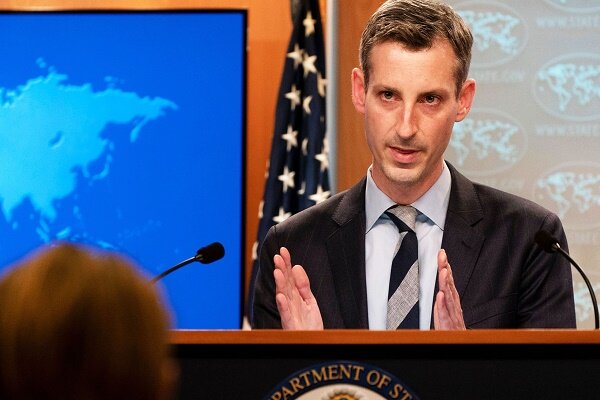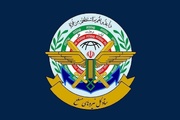On Friday, a high-ranking US State Department official reported that the US administration made a decision to restore the sanctions waivers which allowed Iran to receive assistance on peaceful nuclear projects from other countries, including Russia. The official stressed that the waiver "is not a concession to Iran," nor is it "a signal that we are about to reach an understanding on a mutual return to full implementation of the" Joint Comprehensive Plan of Action (JCPOA).
While some Western media outlets tried to show Biden's administration's new decision a signal of Washington's goodwill to persuade Iran to continue the Vienna talks, Ned Price denied the issue at a news conference Monday.
"So to be very clear, what you said was not true. The issuance of the so-called IFCA waiver in no way enriches Iran. This is about two things. This is about nuclear non-proliferation and nuclear safety. I would suspect most reasonable observers would agree that both of these things are in our vital national interest regardless of what happens with the JCPOA, if we’re able to achieve a mutual return to compliance with the JCPOA or if we’re not. We decided to renew and to restore this sanctions waiver to do one thing, and that is to enable third-party participation in nuclear non-proliferation and safety projects in Iran, owing to the growing proliferation concerns we have, in particular with respect to the increasing stockpiles of enriched uranium in Iran, the stockpiles that have grown following the last administration’s decision to abandon the JCPOA," said Ned Price in response to a question about the restoration of the sanctions waiver on Iran.
In recent years, the United States has imposed sanctions on Iran under the pretext of "nuclear proliferation" or "Countering Weapons of Mass Destruction", accusing Iran of pursuing military goals in the form of a nuclear program.
Iran has repeatedly rejected the claims of the United States and its allies, stressing that as a signatory to the Nuclear Non-Proliferation Treaty (NPT) and a member of the International Atomic Energy Agency, it seeks to exercise its right of access to nuclear technology for peaceful purposes.
The allegations by the United States and its allies come as International Atomic Energy Agency (IAEA) inspectors have visited Iran's nuclear facilities several times but have never found any evidence that its peaceful nuclear energy program is diverted to military purposes.
The 2015 deal, more formally known as the Joint Comprehensive Plan of Action (JCPOA), was signed by the five permanent members of the UN Security Council — the US, the UK, China, Russia, and France — plus Germany and the EU. Despite the International Atomic Energy Agency's acknowledgement of Iran's adherence to all of its obligations, the US former government unilaterally withdrew from the agreement in May 2018 and re-imposed the anti-Iran sanctions that the deal had lifted.
Former US President Donald Trump also placed additional sanctions on Iran under other pretexts not related to the nuclear case as part of his “maximum pressure” campaign.
Amid the indifference of the JCPOA parties toward continued US violations of the JCPOA, in December 2020, the Iranian Parliament passed the Law on "Strategic Action Plan to Counter Sanctions and Protect Rights of the People" that prompted the Iranian administration to restrict the IAEA’s inspections and accelerate the development of the country’s nuclear program beyond the limits set by the 2015 Iran nuclear agreement.
Iran has also increased the level of uranium enrichment beyond the level allowed under the JCPOA in accordance with the accord itself.
The administration of US President Joe Biden says it is willing to compensate for Trump’s mistake and rejoin the deal, but it has retained the sanctions as leverage.
ZZ/FNA14001119000044

























Your Comment